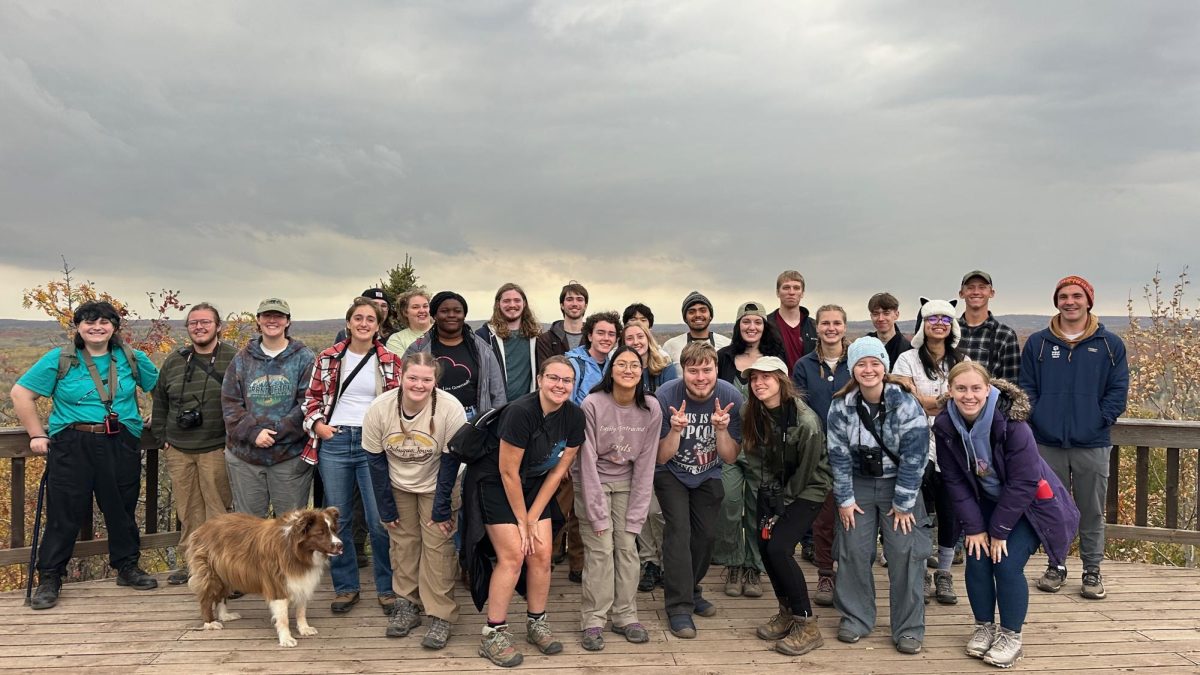Belding: Today’s tea party has yet to learn participation
September 16, 2010
Thousands of people are in the habit of protesting nearly every expenditure of the U.S. government. They gather at parks, capitols and monuments, and outside judicial buildings with their signs that say anything from “Don’t Tread on Me” — complete with Revolutionary War-era banner — to “Stop Socialism Now.” These are the liberty-loving protesters who call themselves the tea party. And if you do a Google search of “tea party,” your top results will include information on the political movement that began circa 2009 with the inauguration of President Barack Obama.
Today’s tea party is nothing like the tea party that became a pivotal event on the American colonies’ road to revolution on the night of Dec. 16, 1773, at Boston Harbor. The two are entirely dissimilar. I know very well that Thomas Jefferson, John and Samuel Adams, John Hancock and the like were great enjoyers of liberty.
I am, too. I really enjoy being left to pursue my own enjoyment. But, like our founders and framers, and unlike what seems like so many of today’s tea baggers, I understand that for some things I have to give something back to my community and country.
The Boston Tea Party and the Revolutionary War were very much about, as you may have learned from either “School House Rock” or elementary school, something like “no taxation without representation.” Yet participants in the tea party protest the actions of men and women they installed in seats of government to represent and balance their interests. The original tea partiers were fighting for the right to participate in their government, not for the right to pursue their own private considerations of interest.
Maybe the tea party candidates for office would currently be serving if they hadn’t waited until the 11th hour to participate in American politics. Maybe, instead of carrying on with their private lives so much, they should have devoted a small portion of their time to being civic individuals. But they have, until very recently, been disengaged from politics in this country.
But I wonder, even if they had been involved in politics, what they would have done with their votes and bureaucratic presence. I am inclined to think they would have done absolutely nothing, or repealed an enormous amount of legislation and regulation, or perhaps they even would have sold off government functions to the highest bidder. Privatization is best, right?
The tea party is an unwieldy mess. There are dozens of organizations related to the movement and even more bloggers, columnists and pundits who try to shepherd its direction. And they make a conscious effort to maintain that freewheeling, undefined status. In some ways that can be beneficial. But what happens when they decide to field a candidate for the presidency and they have to develop a detailed, visionary national platform?
They apparently hold certain truths to be self-evident, and non-negotiable. And in doing so, they will kill what little is left of political practice in this country. They believe businesses and markets can solve our problems most efficiently, at the lowest cost and greatest gain. That’s true if you’re talking about material cost. But what does it do to our public interactions? What does it do to our Republic?
It’s true because in order to participate in a business, you need to be selling them something — your labor and time. In government, on the other hand, everyone is allowed to participate and impact the system simply because he or she is a citizen.
While principle is to be admired, uncompromising attitudes are absolutist and totalitarian and leave little room for debate. I understand being uncompromising about morals and about conduct between individuals.
But governments do not operate in such a realm. Crimes aren’t criminal because they’re immoral or because they hurt you; they’re criminal because they hurt the state — they hurt us. And no, you don’t have an absolute title to your property. You live under a government. Even God demands that you give some of your silver and gold back to Him, and religion is entirely a matter of conscience. If you want life without taxes, you can forego the company and mutual protection of other men and become a hermit.
Much like Socrates, bound to obey the laws of the city he chose to live in, you are bound to obey the laws of the United States. Every day you live here you give your consent to abide by the rules enacted by the representatives you elected. If you don’t like it, you can change it. Elections are every two years, and our Constitution guarantees a legal ability to politically agitate your fellow citizens.
But you can’t change a world in which you do not participate. And that is the lesson our contemporary tea party has yet to learn.





